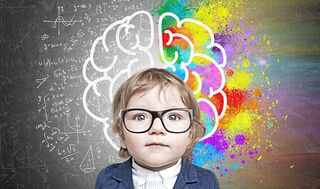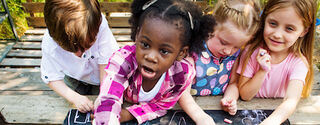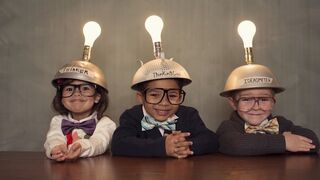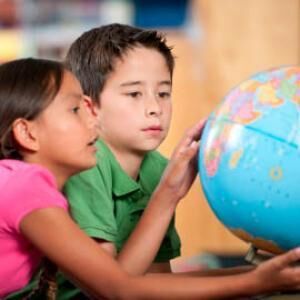Education
What We Learned From Parenting Children With Remote Learning
What strategies did you discover that are useful when kids return to school?
Posted March 26, 2021 Reviewed by Ekua Hagan

We now pass a year of the pandemic's impact on our children's education (and our unexpected teaching/parenting roles). This post honors the reflections reported to me by parents and teachers on these new, previously unchartered, endeavors.
If you have participated with your children in remote learning, you've had a never-before-privilege of seeing them engaged in the "process of learning." Parents have traditionally been backseat teachers to varying degrees once children are in traditional schools. There is a profound opportunity now to reflect on what we've observed, tried, revised, "customized," and sometimes even accomplished, as parents so directly involved in our children's education.

The prominent emotional responses have ranged from exasperating, aggravating, and maddening to sometimes even enjoyable and rewarding. As normalcy and more positive horizons seem to be unfolding, let's take a few moments to reflect on this shared knowledge. See what you find applicable to facilitate your children's future connections to the joys of learning.
This post is a compilation of observations from parents and educators that are so personal, yet expandable, and indeed, worthy of sharing. I appreciate those who did share their insights, failures, and hopes, and hope you'll add yours as responses to this article.
What did you learn about how your children process learning?
- The pandemic helped me be more aware of my children's school-related stress.
- I've seen how valuable it is for me to be more flexible as a "collaborating" parent working with the remote teacher.
- I was inspired when I saw how I could connect my child to learning through his different senses.
- My daughter was not as distressed by her mistakes on Zoom than she seemed to be when previously talking about her mistakes made in class or on tests. I think I was a big part of the problem. Now I have a better understanding of her feelings and I observed her seeming to feel safer making mistakes on Zoom. She seems to be applying this confidence and greater mistake-tolerance in class now that she's had the Zoom experiences.

What strategies did you discover during your remote or blended parent-teacher collaboration that you will continue at home with children back in class?
- My son really liked making up his own analogies for vocabulary words. We're continuing to do that, at his request, together when he studies for tests at school. Example: "After eating the toast, I feel as dehydrated as the dried-out plant."
- My children both really liked the songs used on Zoom to learn numbers, like counting by tens. I'm using more songs for that finding that makes them seem to enjoy their arithmetic now that they are back in school classrooms.
- During Zoom, my child surprised me when he got up and danced during the brain breaks. We are now doing those at home during homework and they really are powerful to keep him interested and alert.
- I saw how much the teachers used curiosity to boost my kid's zest for learning and appreciate them more than ever. I will do my best to follow their examples.

What messages of encouragement do you have for others?
- I believe we can take great strides in recreating education for the better as a result of the COVID situation.
- I am hopeful about parents and educators stretching themselves to learn new technologies and see the importance of incorporating them into learning.
- Richer strategies have been there all along, but I got to see them in action from their teachers.
- I have learned better ways to promote all my children to stay engaged and forge new relationships. I have built my awareness and preparedness, and eagerness to apply my learning to my kids who are now back in class.
- I am most hopeful about opportunities to include play, outdoor learning, and a social-emotional focus.
- I am hopeful about the innovations in education.
To feel comfortable being creative, learning from mistakes, and taking on new challenges, children need to feel a sense of safety and trust. You are the caretakers of your children's joy of learning that embraces the process of learning, not just the products. Take what you and others have learned as parent/teachers during remote learning and as you continue to be more tuned into your children's fears and support systems. You'll discover more about each child's readiness to take on new challenges and apply learning to creative solutions and future innovations.


